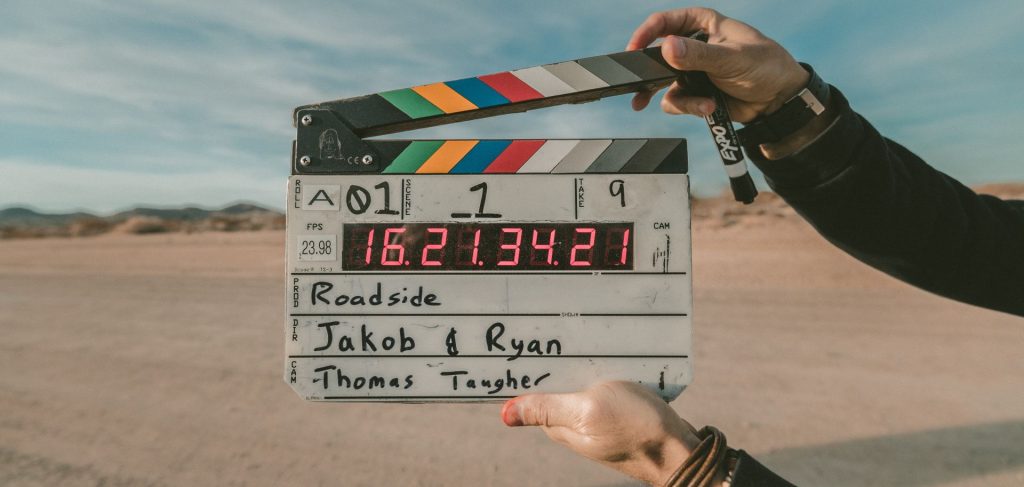Hi! My name is Ella and I am a second-year English student and Career Peer Support Assistant at the Careers Service.
In February I attended the “Careers in media: film, TV and radio” panel event, as part of the Faculty of Arts Careers Series.
The Alumni panel included:
- Ceci Golding: Producer at the BBC
- Kaia Rose: Multimedia Content Lead at Connect4Climate
- Owain Astles: Freelance Film Director
- Rosalind Arnell: Senior Music Producer at Classic FM
Film, TV, and radio are thriving sectors renowned for their popularity and competitiveness. The media industry has seen a shift post-pandemic, with the increase in streaming services creating a huge quantity of new and flexible opportunities.

The media sector contributed 111 billion pounds to the UK economy pre-pandemic. The South West, in particular Bristol, is a thriving media hub which employs around 50,000 people in a wide variety of roles.
Here are my top 6 takeaways from the Q&A panel:
A masters is not a necessity.
Most people start out in runner positions or go straight into internships. Entry-level roles can be very competitive, but still be mindful of unpaid internships. Ceci does not endorse unpaid work but had to do it herself when initially breaking into documentary filmmaking. If you’re interested in Radio, Rosalind mentioned the benefits of having some basic knowledge of audio editing programmes like Audacity, which you can teach yourself through sites like Screenskills.com.
Be direct.
‘Don’t tip toe around the block’, go straight to the companies whose work you like the most. There is absolutely no harm in asking for roles before they are officially advertised, but make sure you protect yourself as companies may exploit your enthusiasm and leave you exhausted.
Initiate relationships (Networking).
Having connections is absolutely vital. ‘You have to be a bit shameless because everybody is going to be.’ Never put anyone on a pedestal – LinkedIn makes people accessible, so reach out and invite people for a coffee before asking them for a job. Be short and succinct – people are bored of constantly messaging each other so you should strive to build relationships away from the internet. Find more original spaces away from traditional networking where you can connect over a shared activity.
Do things around University.
When it comes to media, the activities you do outside of your degree can be more beneficial than the degree itself. Bristol is renowned for its creativity so make the most of the facilities and expertise around you. Things like participatory filmmaking and podcasting can be done alongside other commitments and are great for building a portfolio. Keep an eye out for video competitions as these are ideal starting points for young storytellers.
Navigate the elitism.
The media industry has traditionally been more accessible for the elite but times are changing. There are trainee schemes with BBC and BAFTA, as well as niche communities in the Arts that support and represent underrepresented artists. At the end of this blog, there are links to some of these communities, which Owain highlighted as having ‘all been so supportive and like families to me’. Ceci also suggested trying new media channels like Novara, which work on reimagining a fairer world. Lean into your background and wear it proudly.
Utilise your passions and value.
Working takes up so much of your time you may as well focus on something that you believe in and potentially have the power or aid to change. Ceci and Kaia both prioritised the climate crisis, and found actively working on the situation helps them to manage climate anxiety. In addition to this, knowing a lot about a specialist topic can be a selling point to get you noticed. Don’t be afraid of saying no to projects that aren’t important to you or don’t feel right to your vision.
I hope you have found these takeaways insightful. To listen fully to our panellists’ fascinating journeys, you can access the recording of the event here.
Additional support
For individuals wanting to reach out to organisations for roles not yet advertised, the Careers Service has put together a guide on speculative applications.
I’d also recommend you take a look at the film, TV, and digital media sector guide for further information and resources.
